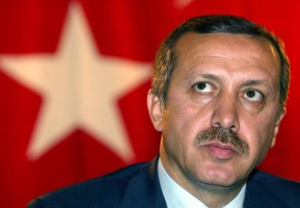By Daniel N.
A new Syrian regime sympathetic to Turkey, would plug the last whole in Turkey’s quest for regional hegemony.
The Syrian conflict is entering its tenth month with Assad’s grip on power largely intact. As opposed to Libya, Egypt, and even Yemen, the international community has been largely reluctant to pressure the Assad regime to end the violence, while the opposition itself has struggled to gain legitimacy amongst the Arab League as a viable alternative current leadership.

To their credit, the West and the Arab world are justified in their hesitation to intervene in Syria. Unlike Libya’s Qaddafi, Assad is closely backed by Iran, as well as Lebanon’s most powerful militia, Hizbullah. In addition, Syria’s sharp sectarian divides between Allawites, Sunni’s, and Kurds, threaten a post-revolution civil war on Iraq’s western border.
Needless to say, the exiled Syrian National Council (SNC) seems unconnected to events taking place within the country, unable to influence the insurgent Free Syrian Army, which has overtaken the spotlight from the opposition’s peaceful protest campaign. Amidst the hesitation of the Arab world and the west to take any real action, Turkey has emerged as the most outspoken critic of the Assad Regime, despite the previously warm ties enjoyed by the two nations.
Since the conflict first erupted in Syria’s rural towns, the Turkish government, let by Premier Recep Tayyep Erdogan, has constantly called for Assad to step down, pushed for sanctions, and even hinted at military intervention in the form of a “Humanitarian buffer zone.” In addition to hosting the Syrian National Council, it is widely rumored that insurgents from the Free Syrian Army are staging their attacks from Turkish territory under the knowledge of the military.
Despite the risks, Turkey above all other nations stands to benefit from regime change in Syria. Since the days of the Ottoman Empire, Syria has served as the Turk’s gateway to the Arab world, its territory constantly remaining firmly within the Empire’s grip as it grew and shrank in size elsewhere. Continue reading Why Turkey is Betting Big on the Syrian Uprising
